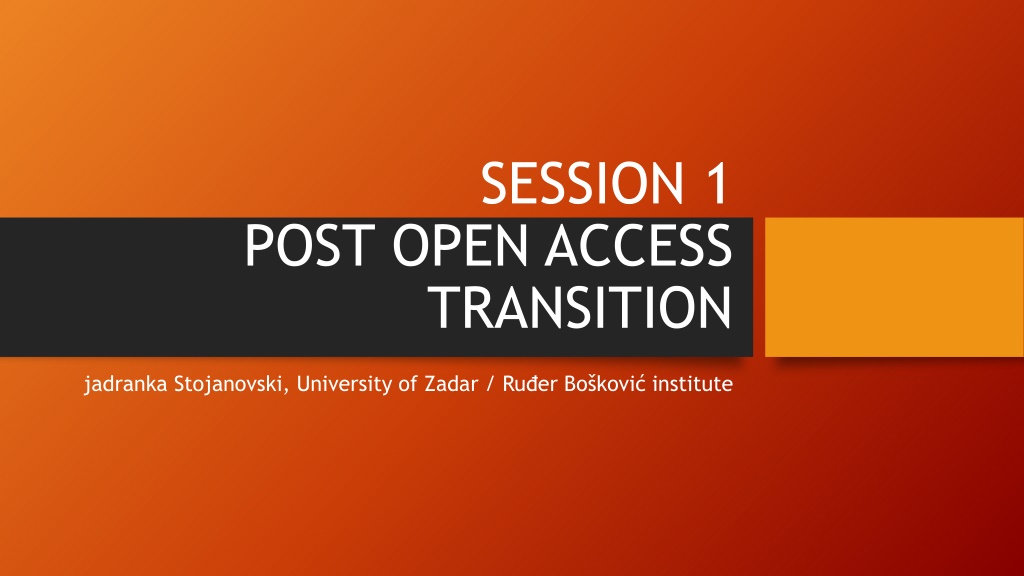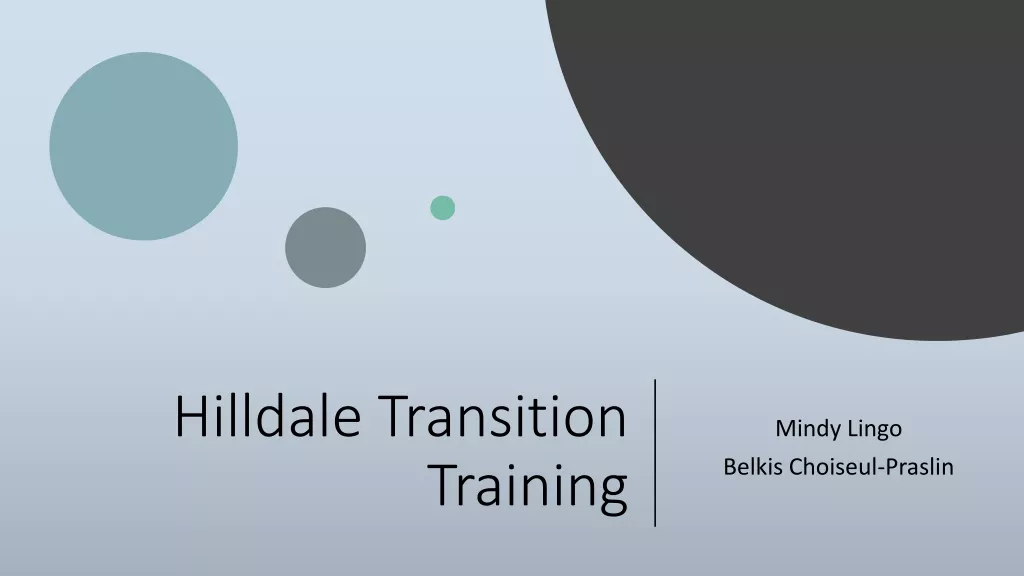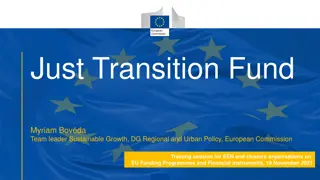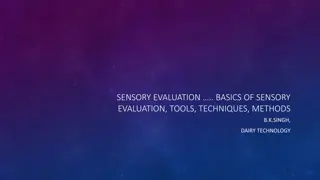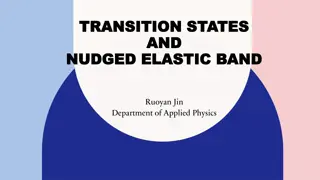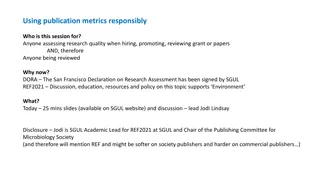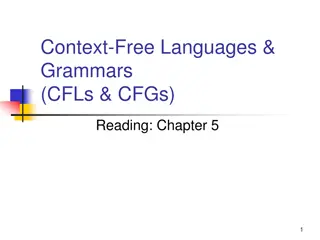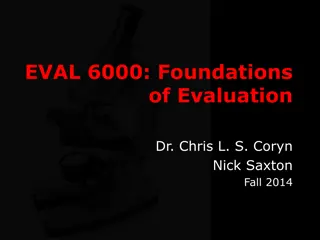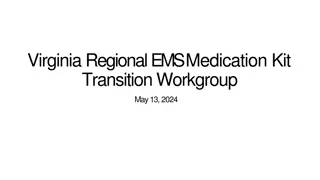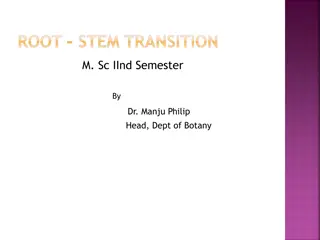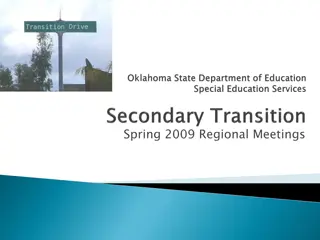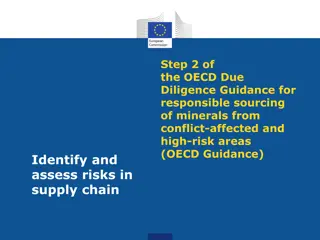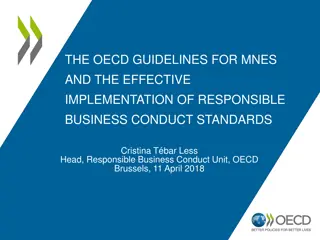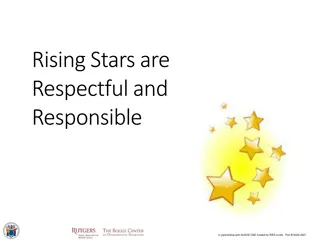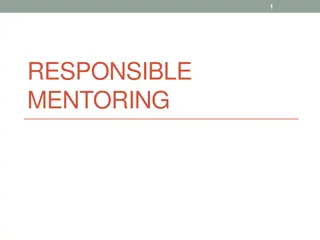Responsible Research Evaluation in the Context of Open Science Transition
Transitioning to open access requires reevaluating research evaluation practices to promote inclusivity, diversity, and transparency. Emphasizing qualitative over quantitative metrics, fostering interdisciplinary research, and embracing community-driven peer review can enhance research integrity and collaboration.
- Research evaluation
- Open science
- Qualitative metrics
- Interdisciplinary research
- Community peer review
Download Presentation

Please find below an Image/Link to download the presentation.
The content on the website is provided AS IS for your information and personal use only. It may not be sold, licensed, or shared on other websites without obtaining consent from the author. Download presentation by click this link. If you encounter any issues during the download, it is possible that the publisher has removed the file from their server.
E N D
Presentation Transcript
SESSION 1 POST OPEN ACCESS TRANSITION jadranka Stojanovski, University of Zadar / Ru er Bo kovi institute
If where and how much you publish is a matter of how much you can afford to pay, how should this be reflected in responsible research evaluation? My short answer would be: No, it is not possible to have responsible resesarch evaluation in the present system, where we evaluate: for rankings, competition (formal) citations from limited citation datasets according to not-transparent and not-adequate metric indicators based on quantitative indicators exclusively
Need for changes in the system promote intedisciplinary research, diversity between disciplines research integrity open science evaluate other types of impact (societal, economic, academic...) stimulate quality of research and good research practices value diversity in research activities, outputs... if quanititative: combination of different indicators, only at broad aggregation level (not individual), in line with objective of evaluation (what we want to achieve? what is important?)
Widening qualitative part of the research evaluation Open Peer Review, with community contribution, more holistic approach post-publication peer review group of expert-evaluators evaluating achievements, not the list of outputs evaluation which allows different kinds of careers, different activities fostering collaboration lowering the competition! making researchers proud for their achievements
ERAC Guideline Paper Research evaluation in a context of Open Science and gender equality Foster the diversity of open research ecosystems Promote inclusiveness and collective involvement in the design of Open Science and research evaluation policies; Encourage a responsible attitude in research evaluation; Foster transparency in research evaluation and trustworthiness in the added value of Open Science and gender equality; Provide the right incentives through evaluation - Create a virtuous circle between training and evaluation.
University of Gent Personal growth and career guidance Self-reflection & dialogue with HR committee Administrative simplification and lower evaluation rhythm Aim: stimulate more differentiated and complementary careers; allow more time for research, teaching and other academic activities; lower the competition (those who perform well will be promoted) Nele Bracke, 2020
